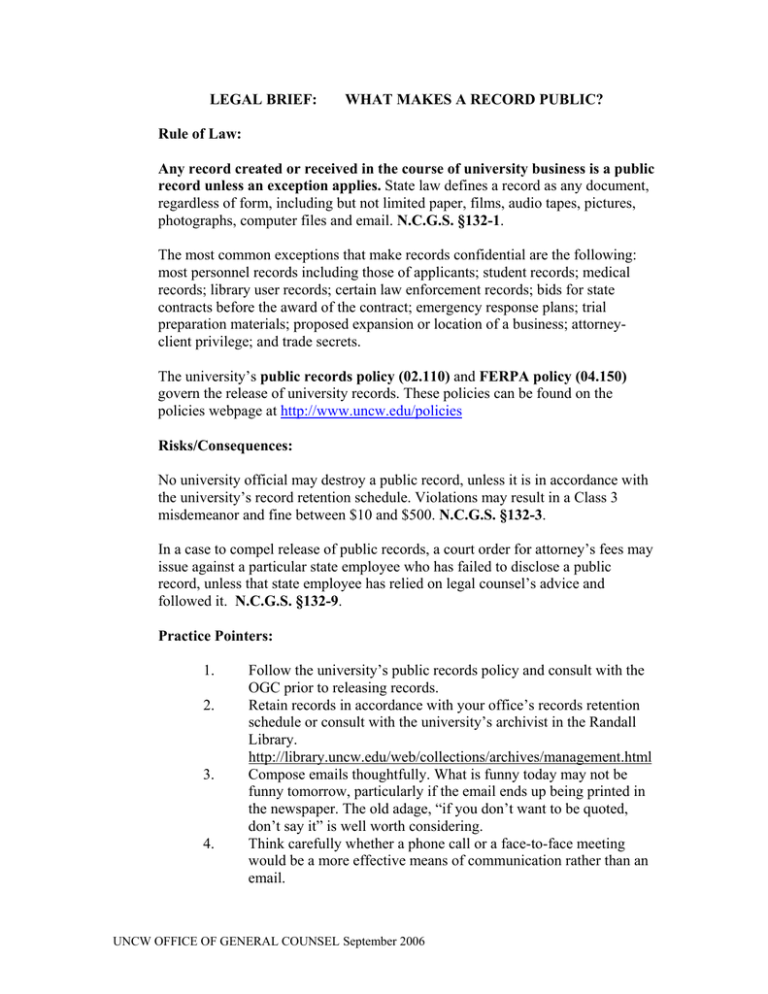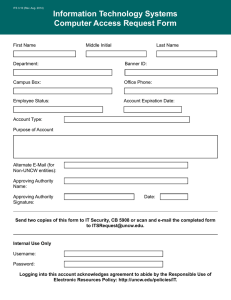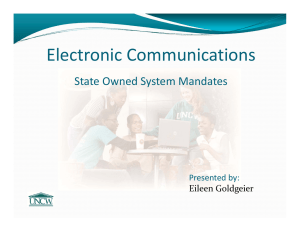LEGAL BRIEF: WHAT MAKES A RECORD PUBLIC? Rule of Law:
advertisement

LEGAL BRIEF: WHAT MAKES A RECORD PUBLIC? Rule of Law: Any record created or received in the course of university business is a public record unless an exception applies. State law defines a record as any document, regardless of form, including but not limited paper, films, audio tapes, pictures, photographs, computer files and email. N.C.G.S. §132-1. The most common exceptions that make records confidential are the following: most personnel records including those of applicants; student records; medical records; library user records; certain law enforcement records; bids for state contracts before the award of the contract; emergency response plans; trial preparation materials; proposed expansion or location of a business; attorneyclient privilege; and trade secrets. The university’s public records policy (02.110) and FERPA policy (04.150) govern the release of university records. These policies can be found on the policies webpage at http://www.uncw.edu/policies Risks/Consequences: No university official may destroy a public record, unless it is in accordance with the university’s record retention schedule. Violations may result in a Class 3 misdemeanor and fine between $10 and $500. N.C.G.S. §132-3. In a case to compel release of public records, a court order for attorney’s fees may issue against a particular state employee who has failed to disclose a public record, unless that state employee has relied on legal counsel’s advice and followed it. N.C.G.S. §132-9. Practice Pointers: 1. 2. 3. 4. Follow the university’s public records policy and consult with the OGC prior to releasing records. Retain records in accordance with your office’s records retention schedule or consult with the university’s archivist in the Randall Library. http://library.uncw.edu/web/collections/archives/management.html Compose emails thoughtfully. What is funny today may not be funny tomorrow, particularly if the email ends up being printed in the newspaper. The old adage, “if you don’t want to be quoted, don’t say it” is well worth considering. Think carefully whether a phone call or a face-to-face meeting would be a more effective means of communication rather than an email. UNCW OFFICE OF GENERAL COUNSEL September 2006



